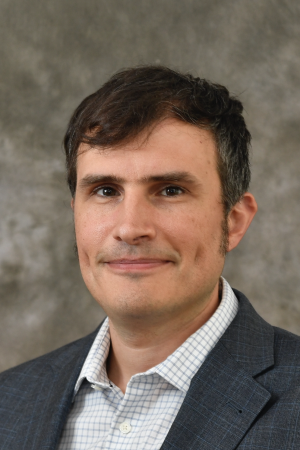Michael G. Walter, Ph.D.

Michael G. Walter, Ph.D.
Education:
B.S.: University of Dayton
M.S.: Portland State University
Ph. D.: Portland State Univeristy
Post-doc: California Institute of Technology
Field of Interest: Organic/Materials Chemistry
https://www.linkedin.com/in/michael-g-walter-b4729018/
Research Focus:
Research in the Walter lab focuses on the synthesis and integration of organic conjugated polymers and dye molecules for solar energy conversion applications. Nature accomplishes the task of solar energy conversion by using molecular systems to direct photoinduced reactions that ultimately store solar energy in the form of chemical bonds. We attempt to mimic these processes by designing materials that absorb solar photons and efficiently convert them into electricity or fuels such as hydrogen. Organic semiconductors are desirable for these applications because they offer the potential for an inexpensively processed, lightweight, and flexible photoactive material. Unique to this effort is the development of new porphyrin and corrole macrocyclic dyes that exhibit interesting optoelectronic properties. Characterization of the fundamental photoinduced electron transfer properties of synthesized materials is conducted using photoelectrochemical techniques, spectroscopy, and device integration. New, promising light absorbing systems are studied in polymer solar cell and in dye-sensitized TiO2 solar cell configurations. In addition, efforts are made to tune photoinduced electron transfer mechanisms at organic and inorganic interfaces through molecular design and nanostructure. One of the ultimate goals of these efforts is the design of an artificial photosynthetic system that uses inexpensive molecular semiconductors and catalysts to convert water and carbon dioxide into usable fuels such as hydrogen and methanol. The advancement of this field rests on the discovery of new organic semiconductors, a field where synthetic organic chemists can contribute in a significant way.